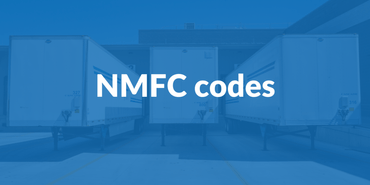
What is the Letter of Indemnity in Shipping



![]()
In order to protect the shipper and the receiver in the shipping process, there are documents that are necessary to complete and accomplish to support the cargo. One of these documents is the letter of indemnity, which serves as a form of contract between the parties.
You have probably heard of this term before, either from a prior shipping experience or it’s something being required of you before you can ship cargo overseas. The letter of indemnity is important to protect the parties in the shipping process, so you need to know as much as you can about it.
In this article, we discuss everything you need to know about the letter of indemnity, why it’s important, and how you can use it to your advantage and protection in the shipping process.
What is Letter of Indemnity in Shipping?
A letter of indemnity (LOI), is a form of contract that binds two parties in business transactions, including shipping processes. It’s a document written by a third-party institution, such as an insurance company or bank, that outlines important provisions and obligations, which both parties must meet.
In case one party does not comply with its obligations under the letter of indemnity, the party writing the LOI will provide financial restitution to the aggrieved party. Letters of indemnity are also referred to as bonds of indemnity or indemnity bonds and are often seen in insurance policies termed as indemnity insurance.
Purpose of the Letter of Indemnity
A letter of indemnity is an important part of any business transaction because it protects a party from losses in case the other party does not comply with his or her obligations. Any losses incurred will be restituted by the appropriate bank or insurance company involved in the transaction.
In a way, the third-party institution renders the parties harmless in case of a breach or delinquency by facilitating the transaction and restituting financial loss.
The Issuance of a Letter of Indemnity
Letters of indemnity are issued by a third-party institution, such as a bank or insurance company, to one or both parties of a business transaction. Being legal and binding documents, they need to be signed by a witness. However, if the subject of the LOI is valuable, it’s recommended that it be signed and acknowledged by a bank, insurance company, or professional operative in lieu of a regular witness.
These are then signed by the recipient when they are presented with the cargo or item. The carrier then issues a bill of lading to signify that they have received the cargo.
What is in a Letter of Indemnity?
In addition to the terms and obligations of the parties involved, a letter of indemnity should include the following information:
- Names of both parties
- Addresses of both parties
- Name and affiliation of the third party
- Detailed description of the items
- Detailed description of intentions
- Signatures of the parties
- Date of execution of the contract
This information is important to render the letter of indemnity valid and enforceable. Without one of these details, it can be difficult to enforce the provisions of a letter of indemnity, which can risk financial losses and the inability to seek relief.
Letter of Indemnity Example
Letters of indemnity come into play in business transactions. One example is in moving companies or delivery services, or aptly, importation and exportation. In this scenario, a letter of indemnity will ensure that the owner of the goods or cargo will be compensated in case it is lost, damaged, or stolen during the shipping process.
A Final Note
A letter of indemnity is a vital part of any business transaction, protecting the parties from any financial loss because of the other’s failure to meet their obligations. In shipping, letters of indemnity protect the owner of the cargo from losses and render them harmless in case parties such as the transport company, port, or freight forwarder breaches their contract or the goods are damaged, lost, or stolen during transport.
Because of its vitality in the shipping process, every transaction should be accompanied by a letter of indemnity. Otherwise, parties can lose their valuables and suffer financial losses and damages in case of fortuitous events or others’ failure to comply with the terms of their contract.
Related Articles


